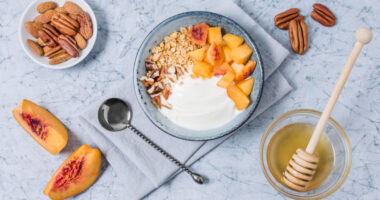Maintaining healthy cholesterol levels is crucial for overall heart health. High cholesterol can lead to serious cardiovascular problems, including heart attacks and strokes. Diet plays a significant role in managing cholesterol levels. Here are 15 foods cholesterol patients should avoid to keep their hearts in good shape.
- Fried Foods
Fried foods, such as French fries, fried chicken, and doughnuts, are high in trans fats. These unhealthy fats can increase LDL (bad cholesterol) levels while decreasing HDL (good cholesterol) levels, contributing to heart disease.
- Processed Meats
Processed meats like sausages, bacon, and hot dogs contain high saturated fats and cholesterol levels. Regular consumption can raise LDL cholesterol and pose a risk to heart health.
- Full-Fat Dairy Products
Full-fat milk, cheese, butter, and cream are rich in saturated fats. Opt for low-fat or fat-free versions to manage cholesterol levels more effectively.
- Red Meat
Red meats, including beef, pork, and lamb, are high in saturated fats and cholesterol. To reduce cholesterol intake, choose lean cuts or plant-based protein alternatives.
- Baked Goods
Pastries, cakes, and cookies often contain butter, shortening, and hydrogenated oils, which are all high in trans fats and saturated fats. These can negatively impact cholesterol levels.
- Margarine
Some margarine products, especially stick margarine, are high in trans fats. Even those labelled “trans-fat-free” might contain unhealthy fats that can raise cholesterol levels.

- Shellfish
Shellfish like shrimp, lobster, and crab contain high levels of cholesterol. While they can be part of a healthy diet in moderation, cholesterol patients should limit their intake.
- Fast Food
Fast food, from burgers to pizzas, is often laden with unhealthy fats, sodium, and calories. Regular consumption can significantly raise cholesterol levels and lead to weight gain.
- Sugary Foods and Beverages
High sugar intake can lead to obesity, a risk factor for high cholesterol. Soft drinks, candies, and sugary cereals should be avoided or consumed in moderation.
- Egg Yolks
Egg yolks are high in cholesterol. While eggs can be part of a healthy diet, those with high cholesterol should limit their consumption of yolks and opt for egg whites.
- Organ Meats
Organ meats, such as liver and kidneys, are very high in cholesterol. Regular consumption can lead to increased LDL cholesterol levels, which can pose a risk to heart health.
- Poultry with Skin
The skin of poultry is high in saturated fats. Removing the skin before cooking can significantly reduce the fat content of your meals.
- Palm and Coconut Oils
These tropical oils are high in saturated fats. While they can be used in moderation, frequent use can raise cholesterol levels. Opt for healthier oils like olive or canola.
- Cream-Based Sauces
Cream-based sauces, including Alfredo and béchamel, are high in saturated fats and calories. Choose tomato-based or vegetable-based sauces as healthier alternatives.
- Butter and Ghee
Both butter and ghee are high in saturated fats. Excessive consumption can raise LDL cholesterol levels. When cooking, use healthier fats like olive oil or avocado oil.
Conclusion
Managing cholesterol levels through diet is a critical aspect of maintaining heart health. Avoiding foods high in trans fats, saturated fats, and cholesterol can help reduce the risk of heart disease. Opt for healthier alternatives, such as lean proteins, whole grains, fruits, and vegetables. Regular exercise and routine health check-ups are also essential in managing cholesterol levels effectively.
By making mindful dietary choices and adopting a healthy lifestyle, cholesterol patients can significantly improve their heart health and overall well-being. Remember, it’s always best to consult a healthcare provider or a dietitian to tailor dietary choices to individual health needs.









